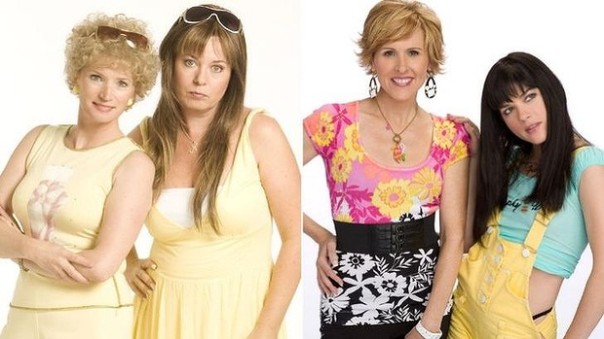
Adaptation, according the Collins English Dictionary is something that has changed or modified to suit new conditions or needs. Therefore, film adaptation is the process of producing an idea of an existing film to in turn produce another film that shares similar values and meanings but is translated according to its culture needs. A prime example of this is the character driven television situation comedy series “Kath & Kim” that has garnered much success nationally in Australia winning two Logie awards and establishing a pop culture in Australia. Internationally, its success on British television inspired its adaptation by Greg Daniels who subsequently was the same producer of the American adaptation of the British sit-com “The Office” (Turnbull, S). Kath & Kim (US) was looking for the same success road as The Office however after the series was premiered, its viewers dropped significantly after the first episode was aired and the series was cancelled after just 17 episodes.
Focusing now on the American version, the plot revolves around the life of mother and daughter, Kath and Kim, their life is portrayed through a sense of humour which was a big success in Australia. Kath was played by Molly Shannon and Kim was played by Selma Blair. In the first episode alone, the similarity towards that Australian version was almost parallel, Kath announces that she has a boyfriend and the reaction from Kim was appalling as in the first episode of the Australian version of Kath & Kim, with Kim challenging Kath about being all “tizzed up” inside only to learn about Kath’s new boyfriend. The series was criticised for being “a pale imitation of the original”, Kath & Kim’s character was not monstrous enough to fit the original role, but ultimately, the argument was that the characters didn’t generate enough irony that the original comedy held which was what made it successful in the first place (Turnbull, S).
According to Turnbull, The problem here was that the humor wasn’t translated across cultures, and this has partly to do with the casting of the characters and the irony that was lost in translation. Kim in the Australian version imagines herself as a horn-bag while her performance shows sufficient evidence to show herself as self-deluded and foolish whereas Kim in the American version is actually trashy and dramatic enough to fit her role as a tabloid queen. This eliminates the humor from the irony that was what the viewer’s actually got from the original version. The heart of the comedy wasn’t there which was what sank the show’s ratings and speared quickly to its end.
Comedy is indeed a universal language but when translated among cultures, it needs to be pinpoint accurate in order for it to be a laughing stock for the other viewers. The way a film is produced should have thorough research before production begins, by affiliating one’s series success on another is an error even in translation because not all comedy fits well with cultures. One’s insult may be another’s joke.
Reference:
Turnbull, S, Television Comedy In Translation, Metro Magazine, Vol. 159, pp. 110-115
